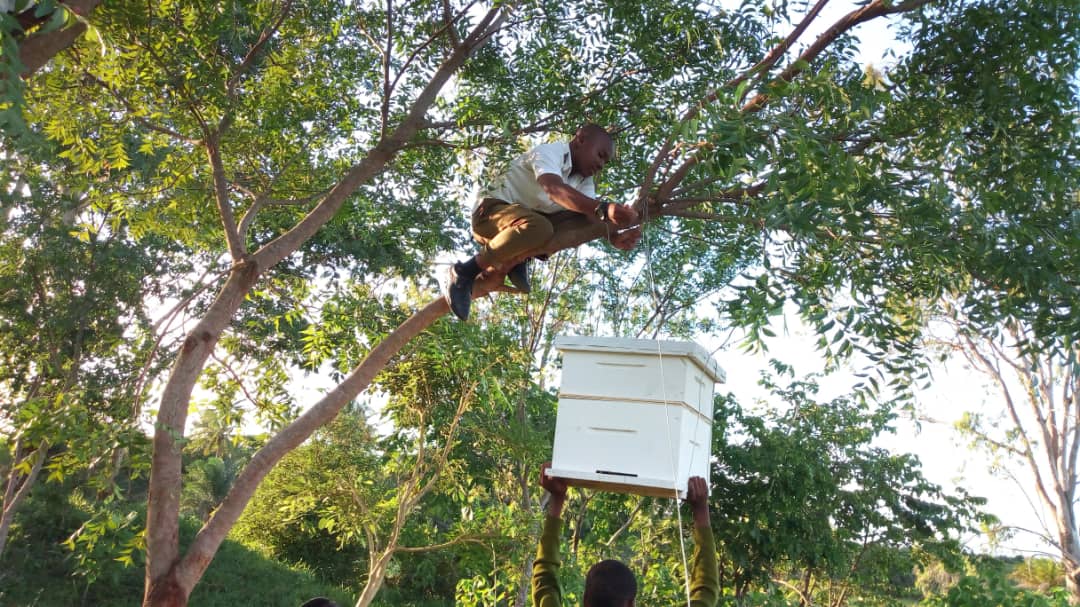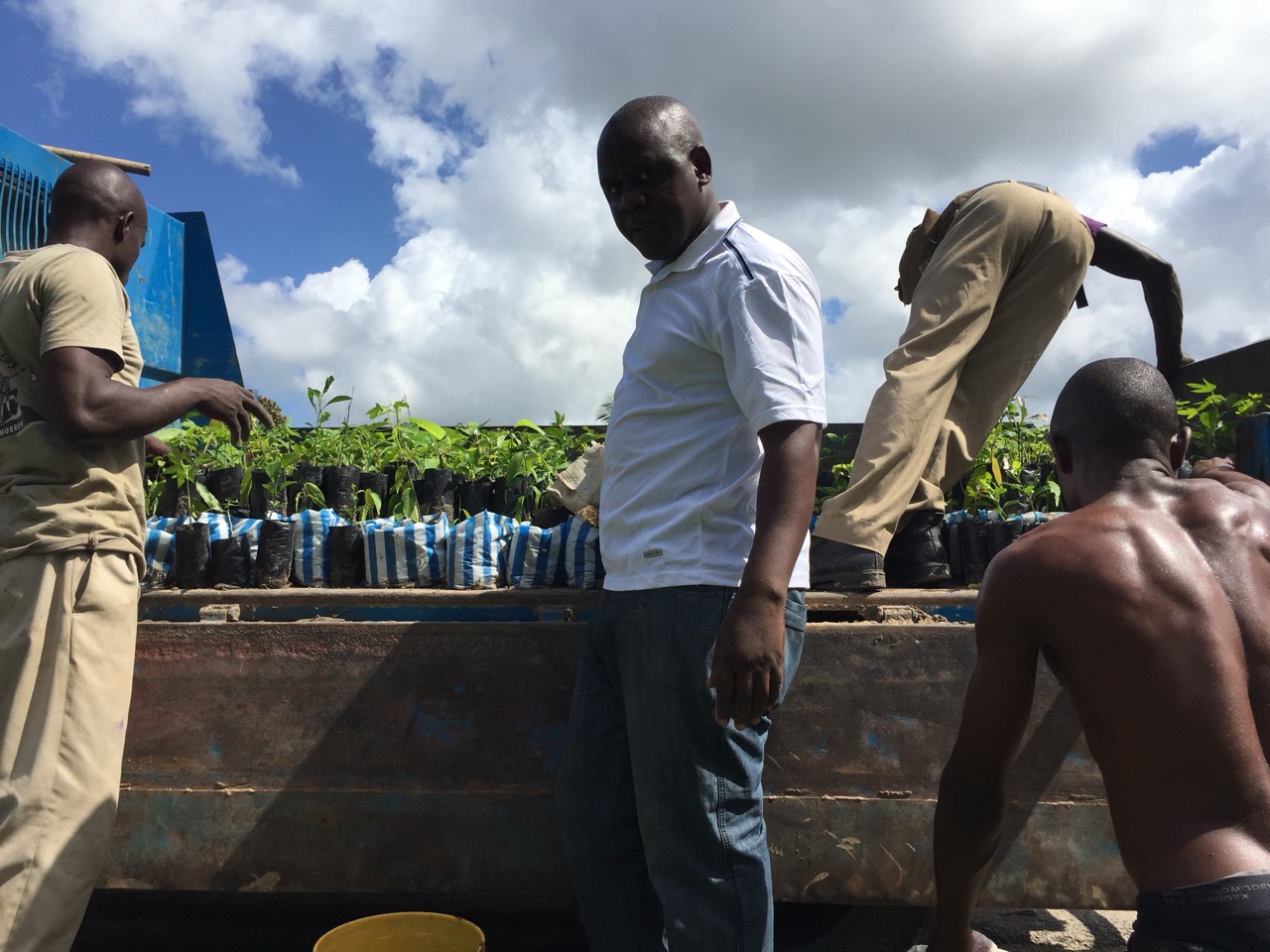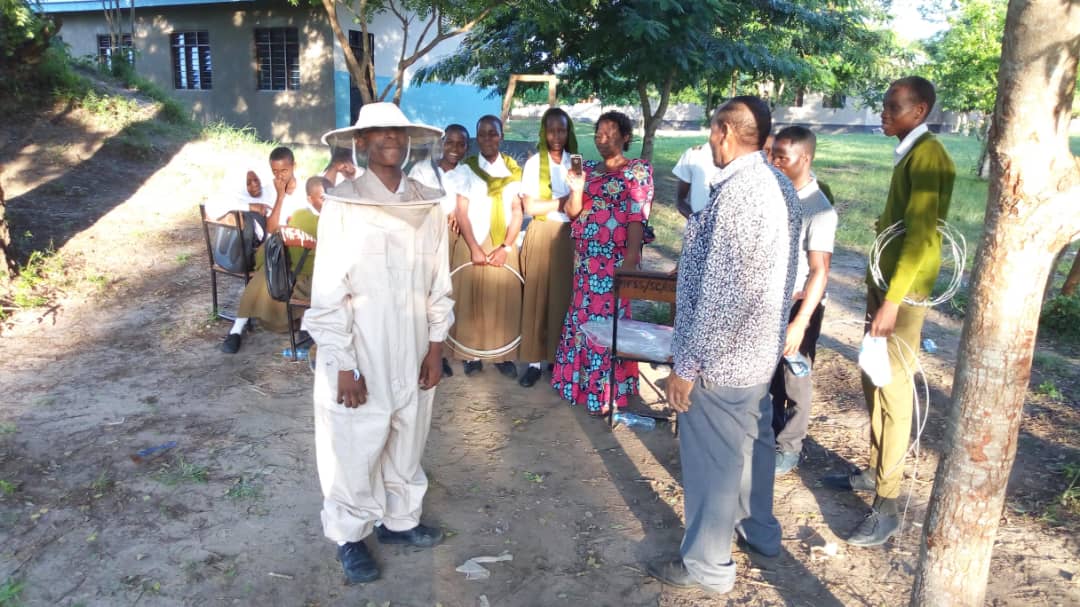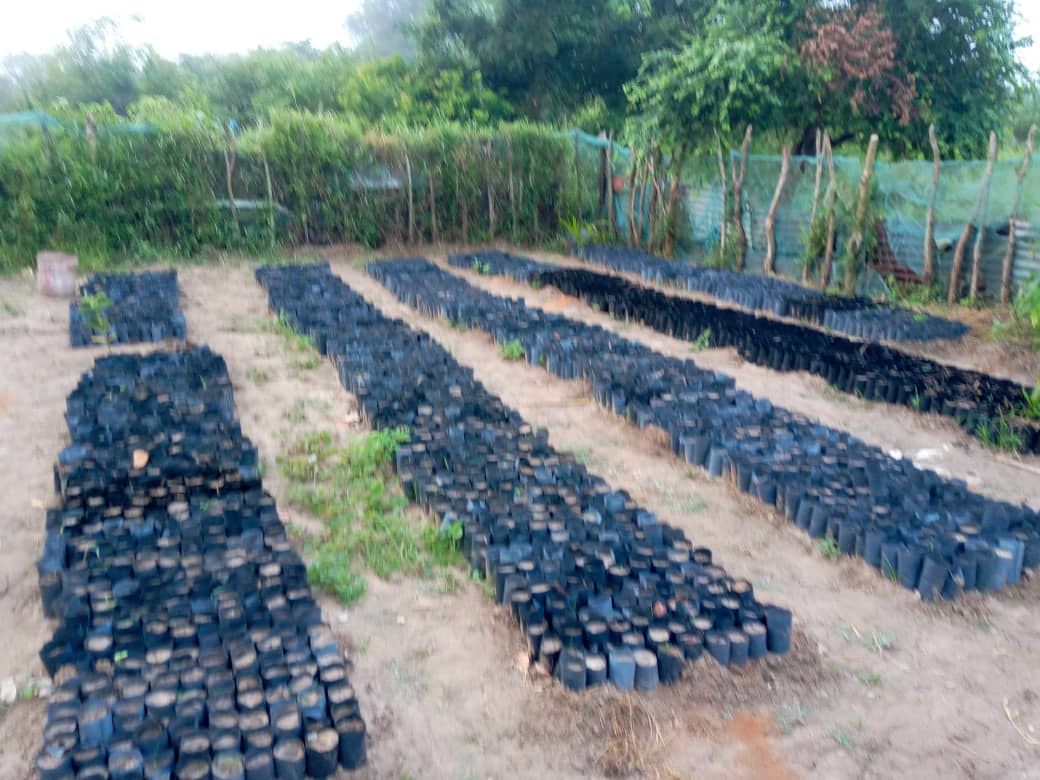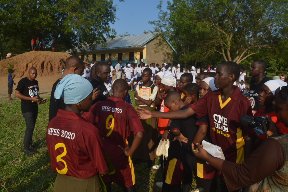Project Summary
Conservation of coastal forests through tree planting and beekeeping in Kibaha District. Tree nurseries are established in schools, whereas the seedlings are transplanted to areas near the Ruwu forest and on the students’ farms, as well as in the school gardens. Beginniers and advanced beekeepers are trained in beekeeping and provided with hives and beekeeping materials.
Project Manager
Country
Tansania
Status
Completed
Budget
42.000€
Partners
Hand in Hand-Fonds
Erbacher Stiftung
BMZ Kleinprojektefonds (Schmitz Stiftungen)
Sensory Minds
One Team
Project goals
Training and further education in beekeeping for 120 smallholders and equipping them with hives and beekeeping materials.
Establishment of tree nurseries at three schools with at least 10,000 seedlings.
Campaigns to raise awareness of the need for resource conservation in and around the Ruwu Coastal Forest in three schools.
Inspired by the success of the first project in Tanzania, we decided to support a second project, as well managed by Ibrahim Hussein, the former Master student from Bonn University. Once again it was not our idea, neither Ibrahim’s but the desire of a farmer cooperative, the Uwako Group, to conduct a project that would conserve the coastal forest while improving their livelihood. The Uwako Group had heared about Ibrahim’s engagement with the Longoi Group in the Usambara Mountains. They envisioned a smiliar project in their area and therefore paid Ibra’s office one day in 2015 a visit to inform him and ask for his support. It took many more meetings and discussions until they sketched a project plan with the goal to secure the supply of fuelwood from forest plantation (thereby conserving the natural forest) and setting up micro apiaries for the farmers. The keeping of bees as pollinators of their crops and the production of honey would have a direct impact on the farmers’ income.
By the time the first report for 2017 was written it was already foreseeable that the Uwako Group was not able to deliver their self set targets. End of March 2018 we had the chance to visit the project and evaluate together with Ibrahim the achievements and failures from the first year. We concluded that for the second project year we will not continue to support the Uwako Group any longer until they have solved their internal quarrels and worked seriously on what they have promised to do. Instead, we fully concentrated on the Mwambisi secondary school as our local partner because their engagement was serious and very promising.
In October 2019, this project continued in a new direction with the support of the Small Projects Fund of the BMZ and again the Hand in Hand Fund. The Mwambisi School continues to be a beneficiary as well as many smallholders from the Uwako Cooperative, but the cooperative itself is no longer included. The most important partner is Mr. Sahil Liana, a retired expert in beekeeping. He will give the beekeeping courses that will be the focus of this second phase.
